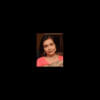Society at a crossroads

The economy of Bangladesh is growing fast with a GDP growth rate of 7.5 percent. Primary education enrolment has grown; private universities and hospitals have increased. Many individuals have become wealthy in the RMG sector, leather industries, light engineering, pharmaceuticals and others. Yet, as the country is advancing, much of its social fabric is disintegrating into violence.
Girls and women are the worst victims. Their status in the social hierarchy remains low and conservative male dominated attitudes have not kept up with social changes.
The poor are still with us. Poverty in 2010 was 31.5 percent. Poverty has a distinct gender bias. In all regions of the world women are poorer than men. In Bangladesh cultural, traditional and dowry related practices make women especially vulnerable.
In 1979, the United Nations General Assembly adopted The Convention on the Elimination of all forms of Discrimination against Women (CEDAW). Bangladesh ratified CEDAW, with reservation on Article 2.13.1 (a) and 16.1 (c). In 2009, Bangladesh National Women Lawyers' Association appealed to the High Court and a sexual harassment law was enacted on CEDAW principles.
But the situation appears to have deteriorated. Ain O Salish Kendra (ASK) reports that in the first half of 2017, 280 women were raped, 39 escaped attempted rape, 16 died after rape and 5 committed suicides to avoid being raped.
Divorce once held disgrace for women, even if they were innocent. They were expected to keep the family together, be submissive and economically dependent on their husbands. Now, with access to education, many women are unwilling to bear violence. In Dhaka North City Corporation 28,355 divorces were issued from 2011 to 2016. In 2011, out of 2,864 divorce notices, 1,773 were initiated by women. But what of the children of these broken marriages? They face trauma and loss of family security, and often turn to drugs and violence themselves.
Another acutely disturbing trend is violence and murder perpetrated by men of different interest groups for personal gains. Sometimes, these murders are horrific. Such extreme cruelty depicts a monstrous side of human nature.
Furthermore, Bangladesh is suffering from "youth bulge", where over 40 percent of the population consist of young people—aged between 18 and 24. Many of them are neither adequately educated nor employed. A 2014 report found that 5 out of 10 graduates were unemployed and frustrated. Such frustration too can lead to violence.
Poor education, parental conflicts, fractured family values are breeding grounds for youth gangs. Coming from disruptive families they want to belong to groups, and in the absence of better alternatives can end in gangs. On August 5, 2017 a school boy named Raju, who was a member of a gang in Dhaka, was murdered by members of a rival gang. This is a phenomenon in both urban and rural areas, and the rivalry is growing.
Wealthy young men with cars, smart-phones and Internet access develop feelings of power. Some are open to radicalism. The Gulshan attack of July 1, 2016 at a restaurant shocked the country when it was revealed that four of the militant youths were from affluent families and had received modern education! Was it bad parenting, violence at home, indoctrination or a desire for adventure that turned them into religious extremists?
At the other end of society, child domestic workers routinely face harassment. Housewives, themselves subject to violent abuses, treat domestic workers inhumanly—beating and sometimes even killing them. According to ASK, in 2016, 40 domestic workers aged 23 to 18—some even younger—died.
What lies behind this social degeneration? Bangladesh is already the most densely populated country in the world. Decrease in the man-to-land ratio has led to migration into cities or abroad. Then there are issues of housing shortages, communication difficulties, pollution, health hazards, unemployment and poor education. Such problems are acute in a period of rapid social change and rising aspirations.
Throughout the world, cities are growth and wealth centres, but in Bangladesh, the urban landscape has continually deteriorated. Land grabbers have taken over 80 percent of khas land and most of the major khal systems in greater Dhaka, identified by JICA in 1984, have vanished and river beds were encroached upon for illegal gains.
Crowded high rise buildings have left little room for playgrounds, spaces for recreation or communal activities. Restless young people can be vulnerable to extremist indoctrination. What can be done, by government and by citizens, to tackle this deep social malaise?
What is needed to reduce violence and create a more stable society?
Wider, better quality educational, vocational and technical training opportunities are needed. NGOs and the private sector do contribute, but the government's budget for education and training must quadruple. Education has to be relevant, analytical, promote cognitive skills to increase the ability of students to adapt to diverse situations. Proficiency in English or another international language promotes employment. Teachers need rigorous training at home and abroad.
Better health facilities and larger proportion of the national budget should be dedicated to health services.
Appropriate counselling services should be made available to parents to promote good parenting and pleasant home environments.
Greater community involvement with the young should be established. The authorities need to establish community centres for sports and cultural activities where these are not present.
Better quality policing and security should be promoted so that the young can refrain from violence and channel their energies creatively.
Some control over students' exposure to social media should be considered. Educational enrichment through projects commensurate with their ages—such as making a fish pond if there is space, planting and nurturing trees, writing plays and acting them out for entertainment, making simple computers, mobile phones or other gadgets—can be better alternatives.
And lastly, school curriculum should include a section on "good citizenship" to create a supportive environment.
Of course, it is easier to create such a wish-list than to put it into effect. Governments struggle to raise adequate tax revenues. Corruption, patronage and lack of transparency weaken their effectiveness. All citizens, business and social groups should realise that they must participate, not only by making demands on the government, but by their own example and in their families and communities.
We need to face these challenges if we are to reach a stage where the many UN conventions and government acts can be implemented judiciously, and the society can regain stability. The government must take the lead, but in the end, everyone must take up this challenge individually.
Professor Selina Mohsin is a former ambassador and secretary.






Comments